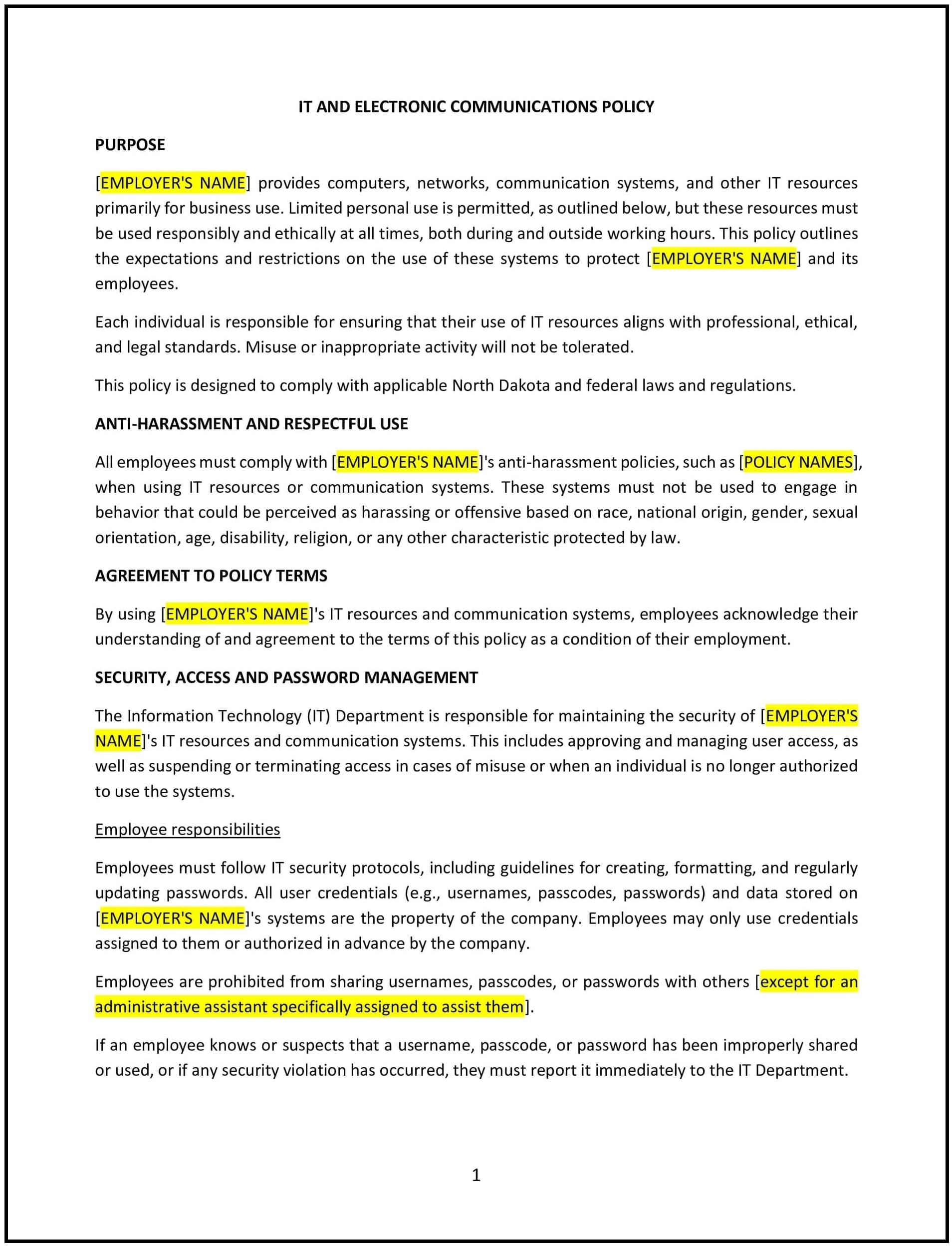IT and electronics communications policy (North Dakota): Free template
Got contracts to review? While you're here for policies, let Cobrief make contract review effortless—start your free review now.

Customize this template for free
IT and electronics communications policy (North Dakota)
This IT and electronics communications policy is designed to help North Dakota businesses establish guidelines for the responsible use of company IT resources, including email, internet, and electronic devices. The policy outlines acceptable use, security protocols, and monitoring procedures.
By implementing this policy, businesses can enhance cybersecurity, prevent misuse of company resources, and protect sensitive data.
How to use this IT and electronics communications policy (North Dakota)
- Define acceptable use: Outline appropriate use of company devices, email, and internet.
- Establish security protocols: Require password protection, encryption, and secure remote access.
- Address personal use: Specify limitations on personal device and email use during work hours.
- Prohibit unauthorized software and downloads: Prevent malware and unauthorized applications.
- Implement monitoring guidelines: Inform employees about workplace IT monitoring practices.
- Require data protection measures: Set guidelines for handling confidential business information.
- Review regularly: Update the policy based on cybersecurity developments and technology changes.
Benefits of using this IT and electronics communications policy (North Dakota)
Implementing this policy provides several advantages for North Dakota businesses:
- Enhances cybersecurity: Reduces risks related to hacking, phishing, and data breaches.
- Protects business data: Prevents unauthorized sharing of sensitive information.
- Increases productivity: Limits non-work-related use of company IT resources.
- Reduces legal liability: Establishes clear rules on electronic communication practices.
- Reflects North Dakota-specific considerations: Addresses IT risks relevant to local industries.
Tips for using this IT and electronics communications policy (North Dakota)
- Enforce strong password policies: Require employees to use complex passwords and multi-factor authentication.
- Educate employees on cybersecurity threats: Provide regular training on phishing and malware risks.
- Monitor compliance: Regularly audit IT usage and security practices.
- Set device usage expectations: Clarify whether personal devices can connect to company networks.
- Adjust as needed: Update policies based on evolving cybersecurity risks.